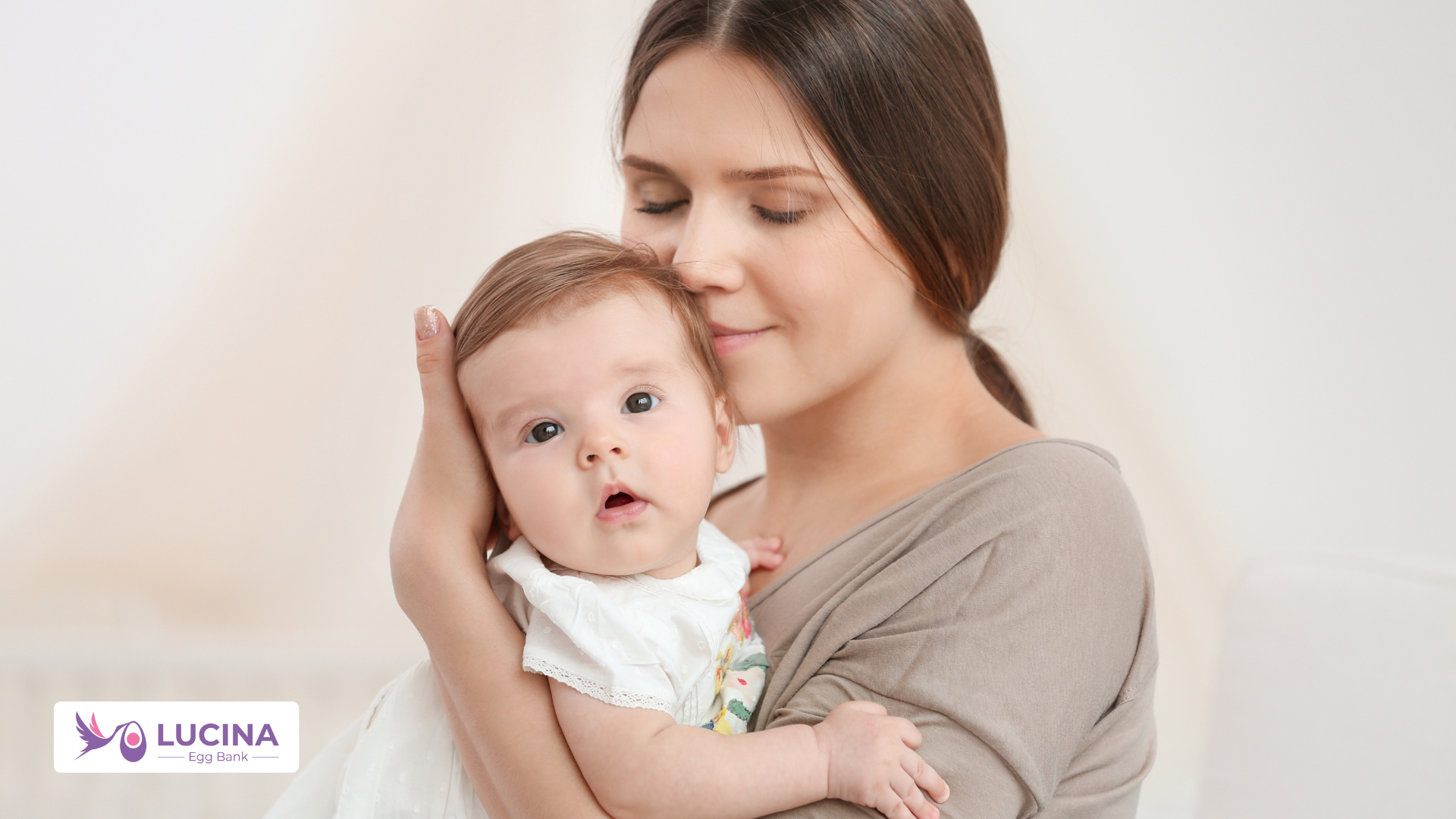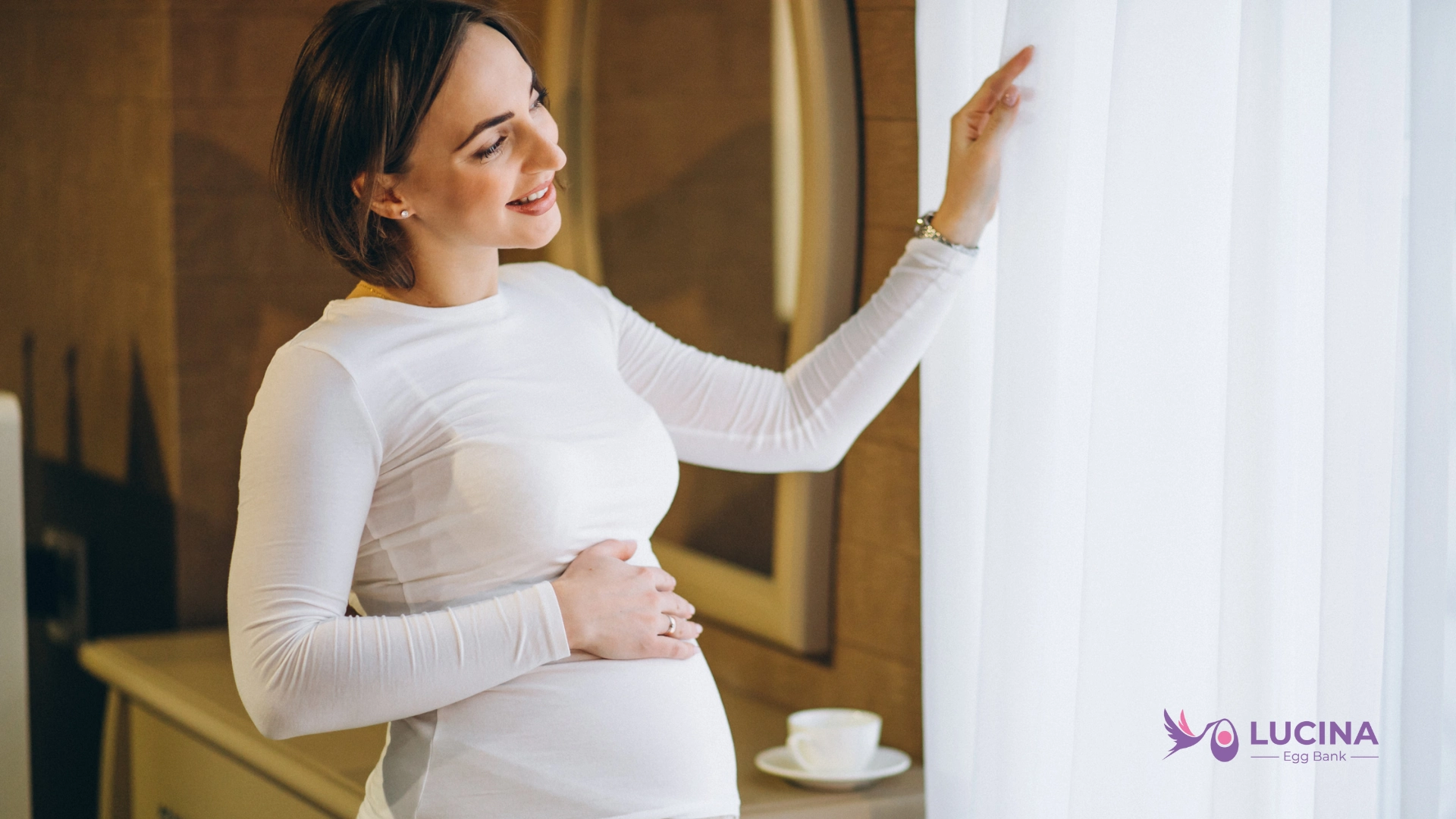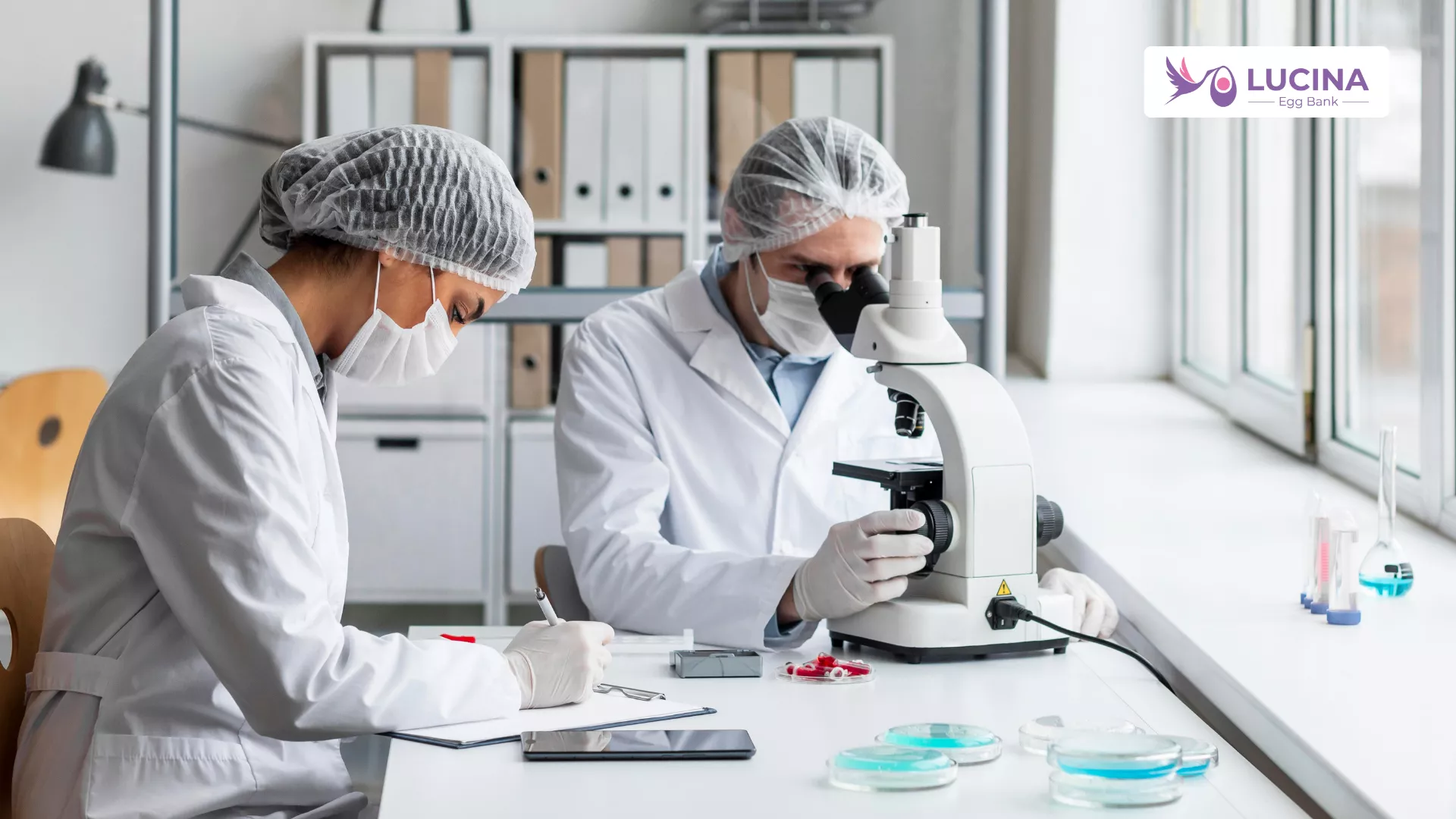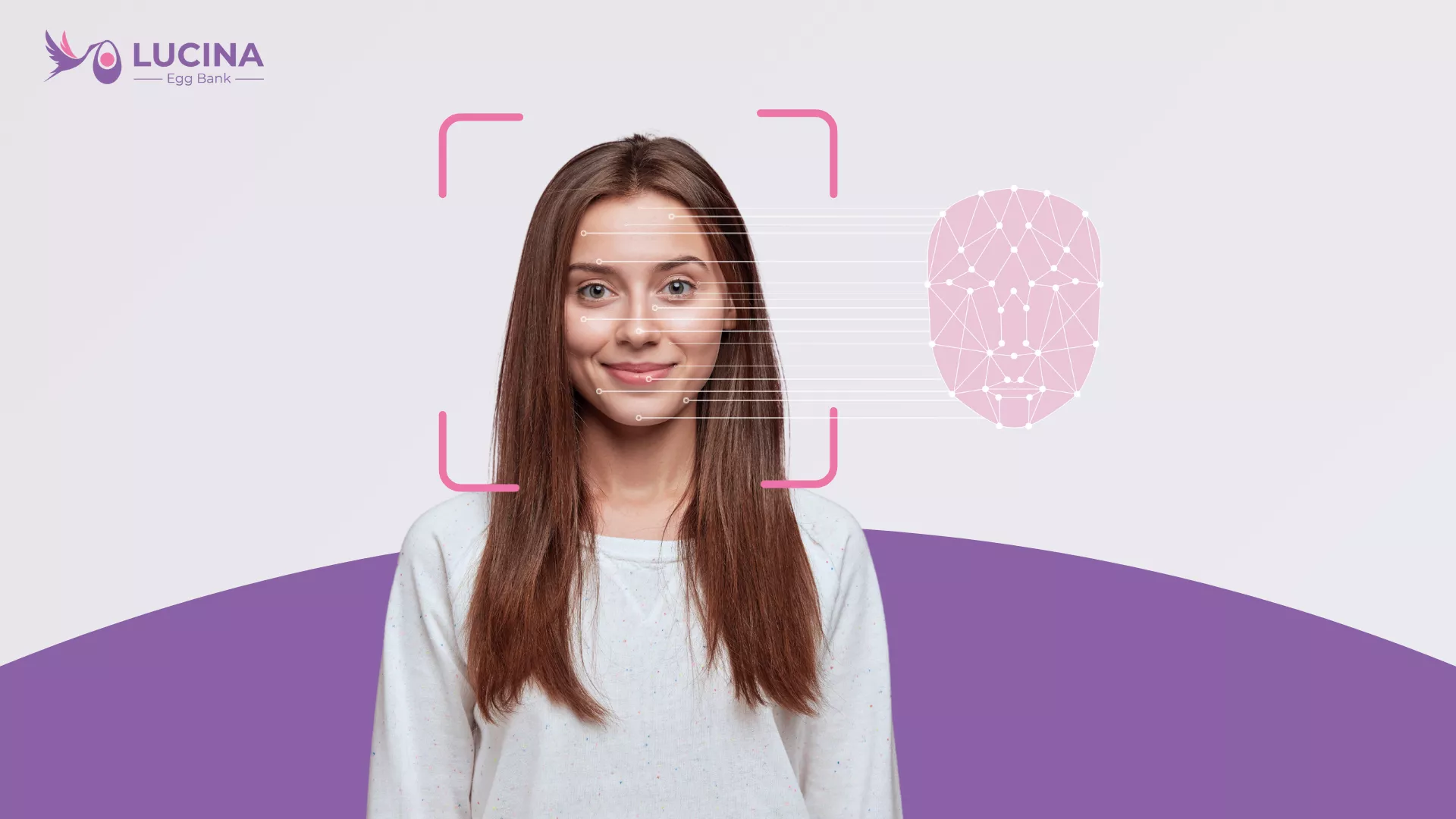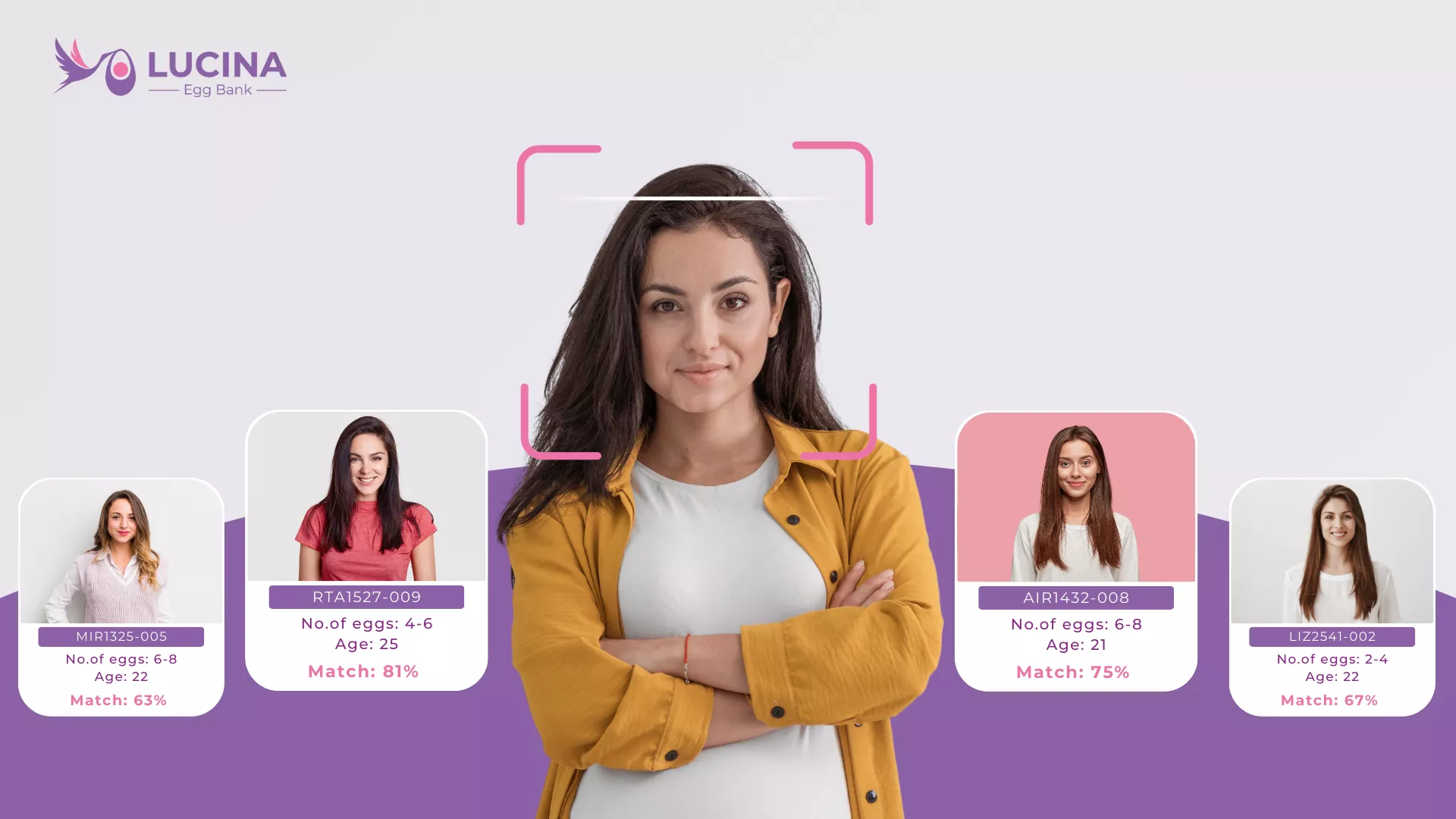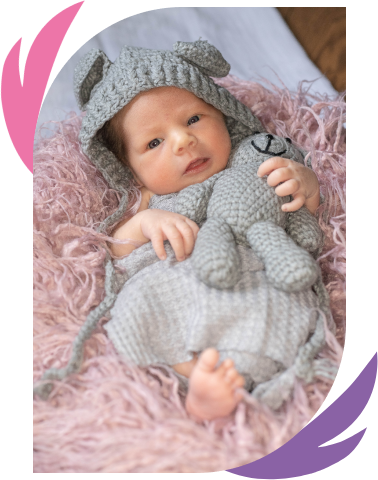Using a fertility egg donor can improve the chances of a successful pregnancy. This option gives hope to many intended parents. Egg donation and in vitro fertilization (IVF) are trusted choices for those dealing with infertility. It’s important to know what affects egg donation success rates. This helps in making smart choices.
Key Takeaways
- Donor eggs consistently achieve higher success rates, providing hope for intended parents.
- Frozen egg cycles offer flexibility and reliability, often matching or exceeding the success rates of fresh cycles.
- Choosing a reputable egg bank with strong protocols is important for achieving high success rates.
- Egg banks with guarantee programs promise healthy eggs or a successful pregnancy, helping reduce financial worries.
Pregnancy Success Rates Using Donor Eggs
Using fertility donor eggs often leads to better success rates than traditional IVF with a woman’s own eggs. This is especially true for women with diminished ovarian reserve or those with advanced maternal age. Donor egg IVF success rate can be 60–70% per cycle. This is much higher than the rates seen with standard IVF.
One key reason for this success is the quality of the donated eggs, which typically come from young, healthy individuals carefully screened for overall health, family medical history. Genetic testing is also implemented to avoid genetic disorders. Additionally, advancements in egg donor in vitro fertilization, including egg retrieval and embryo transfer techniques have further improved outcomes.
Many families find joy in successful pregnancies through egg donation. Finding a good egg donor is possible through a reliable egg bank and expert help from a trusted fertility center.
Factors Influencing Success Rates
Using a fertility egg donor involves several important factors that affect the chances of pregnancy. Understanding these factors can help intended parents make informed decisions and improve their chances of success.
Age of the Egg Donor: Younger egg donors, typically between the ages of 19 and 31, provide eggs of higher quality. Eggs from this age group are more viable, which helps for better chances of successful fertilization and implantation. Choosing a donor within this age range can play a major role in achieving a healthy pregnancy.
Health and Lifestyle of the Donor: The donor’s health and lifestyle are important factors. A good egg donor program includes extensive screenings for its donors to assess their overall health. These evaluations look at fitness levels, eating habits, and whether harmful behaviors are present. This includes smoking or drug use. A healthy donor guarantees better egg quality, which increases the likelihood of success.
Health and Readiness of Future Mother: The overall health of the future mother plays a major role in the success of fertility treatment. Maintaining good overall health, including proper nutrition, managing stress, and following medical guidance, creates more chances of a positive outcome. However, for intended parents whose medical history prevents carrying a pregnancy safely, achieving these high success rates often involves using a gestational surrogate.
Embryo Quality: High-quality embryos result from the combination of healthy eggs and sperm. When embryos undergo genetic testing, the chances of implantation improve during IVF cycles. This testing also reduces the risk of miscarriage, ensuring an easier journey.
Type of Cycle: Using a frozen egg donor has become a widely preferred option for many intended parents. Frozen eggs maintain excellent success rates, thanks to advanced cryopreservation techniques.
Fertility Clinic Expertise: The expertise of the fertility clinic plays a main role in achieving success with egg donation. The best fertility clinics with skilled medical teams ensure every step is done right This includes everything from egg retrieval to embryo transfer.
Egg Bank: They offer high-quality donated eggs and thorough screening processes which can provide a better selection of eggs. Reputable egg banks improve the chances of a successful cycle. They meet all medical and genetic criteria during egg donation. This provides a trustworthy resource for intended parents.
Frozen vs. Fresh Egg Donors For Success
When choosing donor eggs, the decision between frozen and fresh eggs significantly impacts success rates. Both options can lead to healthy pregnancies, but frozen eggs are often favored due to their reliability and convenience.
Fresh egg donation requires precise synchronization between the donor and recipient, which can increase stress and cause delays. While fresh eggs are retrieved and fertilized immediately, their success depends heavily on timing and coordination.
Frozen eggs, on the other hand, eliminate the need for synchronization. Advances in freezing methods, such as vitrification, ensure excellent egg quality and viability. Studies show that frozen egg donors now offer comparable or even better success rates while providing greater flexibility for intended parents.
Advantages of Frozen Egg Donors
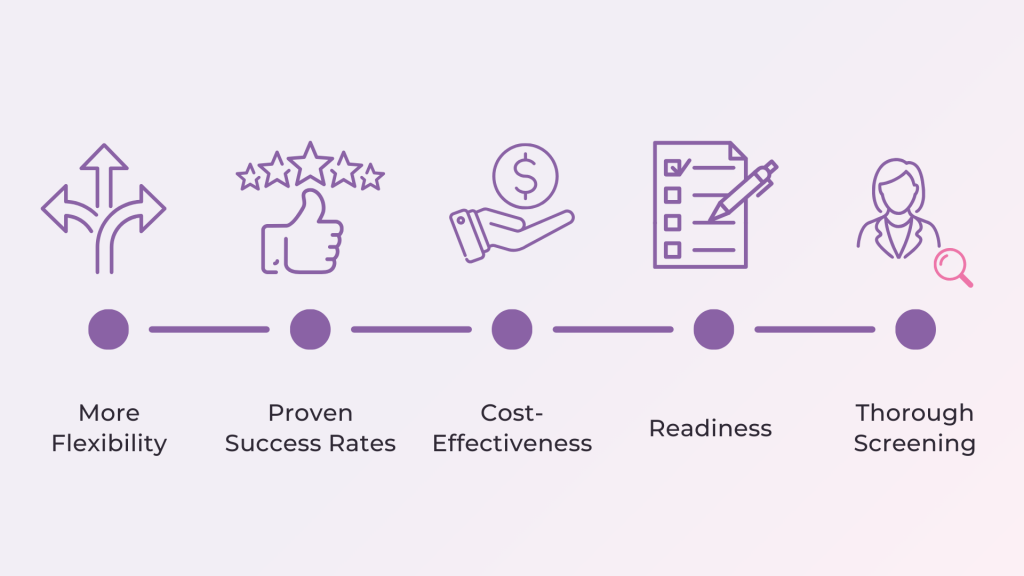
Choosing frozen egg donors comes with several benefits that improve the overall experience and outcomes for intended parents:
- More Flexibility: You can schedule the cycle when it works for you. This makes the process easier.
- Proven Success Rates: Modern freezing techniques preserve the integrity of the eggs, resulting in high donor egg IVF success rates.
- Cost-Effectiveness: Frozen eggs usually cost less than fresh cycles. They don’t need real-time syncing or extra retrievals.
- Readiness: Frozen eggs are ready to use right away. This cuts down wait times and helps intended parents move forward quickly.
- Thorough Screening: Eggs in frozen egg banks typically come from donors who have already passed extensive screening processes, ensuring high-quality options.
The Role of a Reputable Egg Bank in Success Rates
The quality of an egg bank plays a main role in achieving high donor egg success rates. A trusted egg bank makes sure all donor eggs meet strict standards. This includes everything from initial screening to advanced egg retrieval methods. These steps contribute to the quality and viability of the donated eggs, which directly impacts the likelihood of a successful pregnancy.
By partnering with an established egg donation agency or egg bank, intended parents can benefit from access to well-screened donors and modern technology. Choosing the right egg bank is a necessary step in improving egg donation success rates and achieving a positive outcome.
Key Considerations in Choosing an Egg Bank
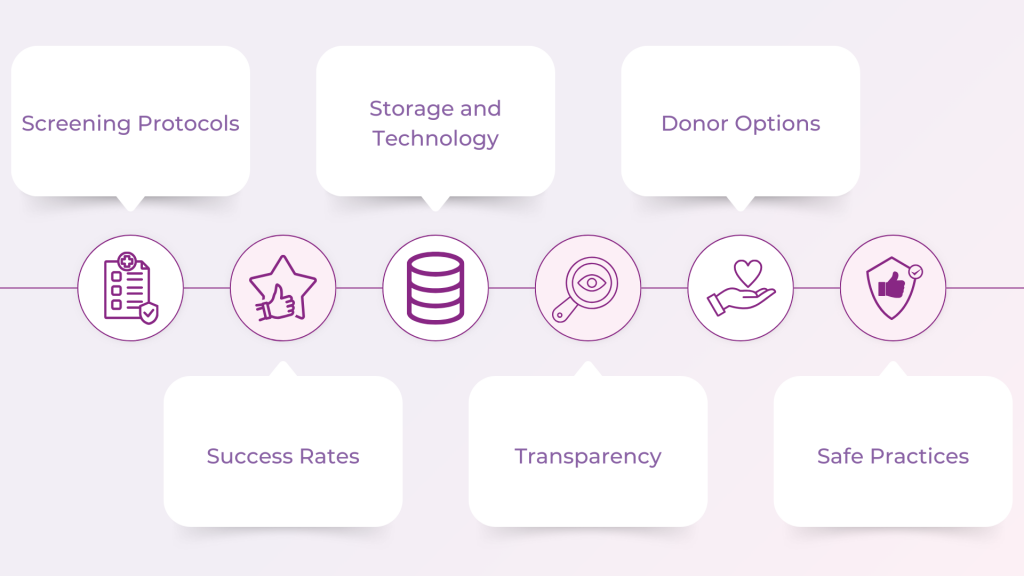
Selecting the right egg bank requires careful evaluation for the best chance of success. Here are the key factors to consider:
- Screening Protocols: When selecting an egg bank, it’s important to prioritize those that implement thorough screening protocols. These protocols should include detailed family medical history reviews, genetic screening, and complete physical exams for all donors.
- Success Rates: Before making a decision, always ask for data on the donor egg IVF success rate specific to the egg bank you’re considering. Success rates differ by center, so it’s important to check how well their donor eggs did in past cycles.
- Storage and Technology: The technology used to store frozen egg donors plays a significant role in maintaining egg viability. Advanced freezing methods, such as vitrification, have revolutionized the preservation of eggs.
- Transparency: A good egg bank should share clear details about its entire process. This includes information on costs, terms, and any guarantees they may offer. Transparency helps build trust, allowing intended parents to feel secure in their decision-making process.
- Donor Options: Intended parents need many donor options to find a match that fits their values and preferences. A diverse selection of physical traits, education, and ethnic backgrounds helps intended parents find the right donor. This variety helps their their confidence in their donor selection.
- Safe Practices: Choosing an egg bank that adheres to strict safety protocols is essential for ensuring the health and well-being of both the donor and the recipient. The American Society for Reproductive Medicine (ASRM) sets complete guidelines for egg banks to follow. This includes rigorous donor screening for medical and genetic conditions, as well as detailed health evaluations. By selecting a bank that follows ASRM guidelines, intended parents can trust that the egg bank is committed to the highest standards of safety and ethical practice.
Guarantee Programs
Many reputable egg banks offer guarantee programs to provide intended parents reassurance. These programs often promise a certain number of healthy eggs. They may also guarantee a successful transfer or pregnancy outcome.
However, setbacks can still happen. Donor eggs often work well, but sometimes issues arise. These can include failed fertilization or unsuccessful pregnancies.
Guarantee programs ease financial stress in tough times. They provide a safety net and show that the bank supports its service quality.
These programs lower financial risk and show that the egg bank is committed to supporting you throughout the process. When reviewing guarantee programs, it’s important to thoroughly check the terms and conditions. Understanding them fully ensures they align with your goals and gives you confidence as you move forward with your journey.
Questions to Ask Your Egg Bank
Before choosing an egg bank, ask questions. This helps clarify their process and confirm their credibility. Consider these key questions:
- What are your success rates with frozen egg donors?
- What is included in the donor’s screening process?
- Do you offer guarantee programs, and what do they cover?
- How are the donated eggs stored and maintained?
- What support or guidance do you provide for intended parents?
Final Thoughts
Using a fertility egg donor offers intended parents an incredible opportunity to achieve their dreams of parenthood. IVF with donor eggs success rates are at an all-time high. Intended parents can build their families by understanding what drives success. Partnering with a trusted egg bank helps them experience this journey with confidence.

